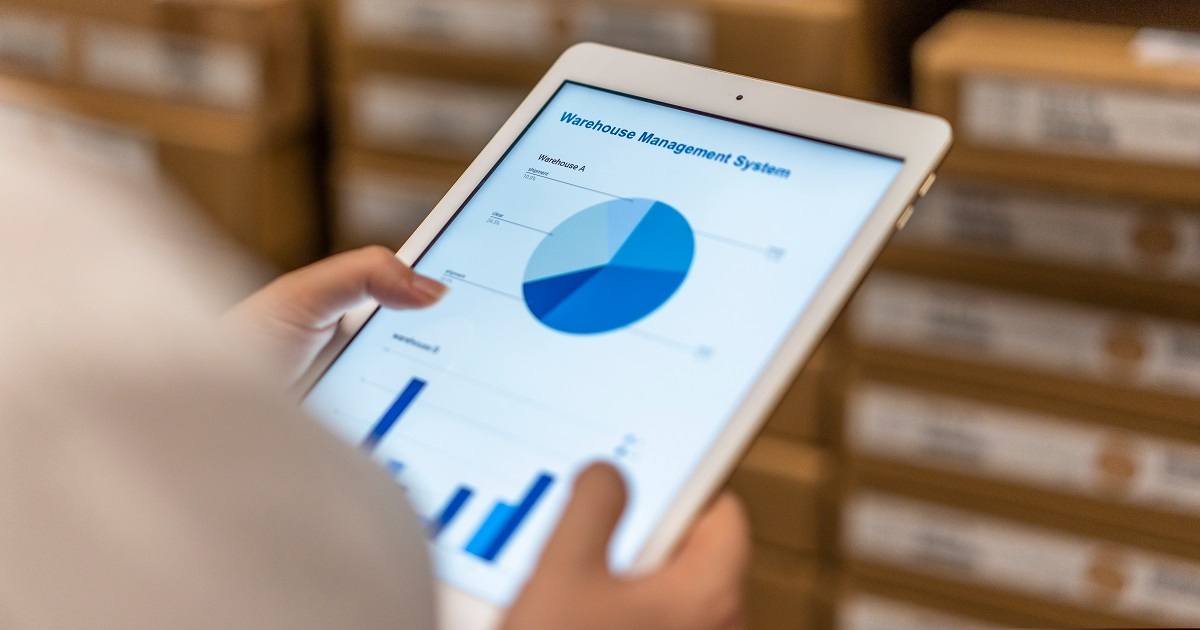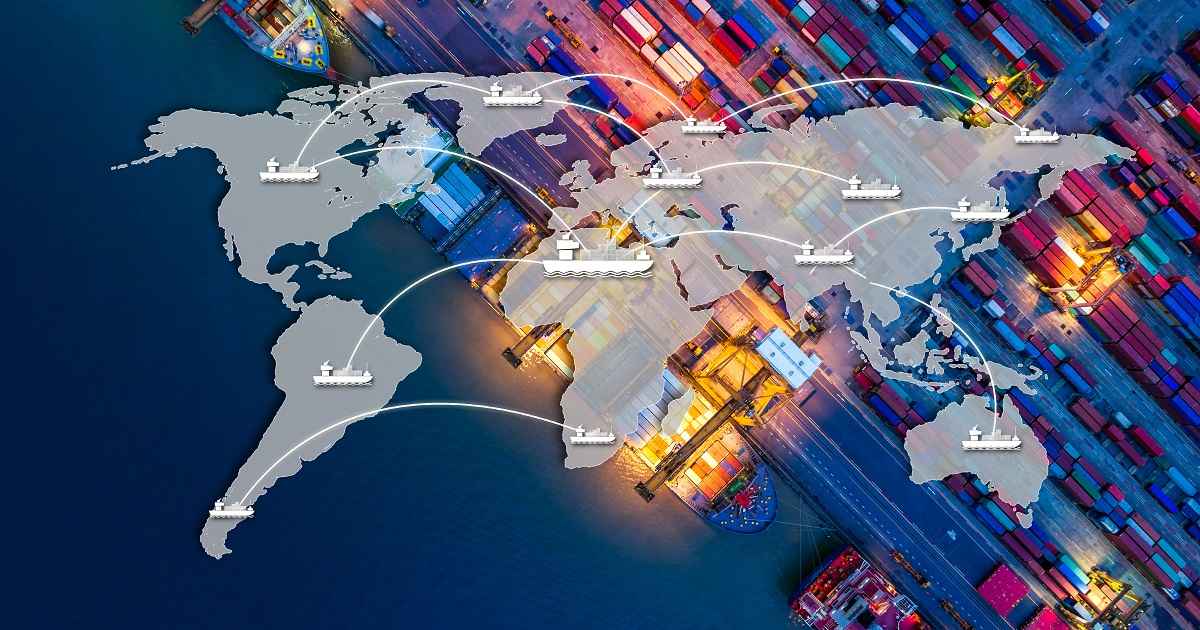
Management
Article | June 21, 2023
Improve supply chain operations with innovative inventory management best practices. Uncover the techniques for achieving exceptional supply chain performance in the B2B competitive marketplace.
Effective inventory management is critical for businesses seeking to optimize their supply chain operations and improve their warehousing & supply chain distribution efficiency. By employing demand optimization techniques, inventory management aims to strike the right balance between meeting current and anticipated future demand while minimizing unnecessary inventory costs. Organizations that maintain optimal inventory levels can mitigate challenges associated with inventory, such as overstocking and stockouts.
In supply chain management, inventory optimization is vital, as it directly impacts organization’s ability to thrive. For any enterprise selling products, the effective management of goods is essential. Without adequate stock levels for sales or fulfilling customer orders, revenue generation and overall income can be severely hindered. Inefficient inventory management, leading to stock shortages, can create stumbling blocks for businesses. Conversely, improper stock tracking resulting in excess inventory can strain financial resources. As these issues compound, it further contributes to inventory imbalances, eventually leading to bottom-line losses from expired or redundant stock.
According to a recent Statista survey, 40% of the supply chain industry has already adopted advanced technologies to optimize its inventory and using networking tools.
The above data signifies the importance of optimizing and managing inventory for improved supply chain performance. Inventory analytics, typically overseen by an inventory manager, offer valuable insights that aid in understanding and enhancing inventory performance. Inventory management best practices help achieve effective inventory optimization, crucial data points encompassing products, suppliers, procurement, purchases, and sales that are meticulously tracked within the inventory management system. These data, in turn, serve as the foundation for formulating inventory metrics aimed at demand optimization.
This article explains the techniques to optimize and manage inventory with the inventory management best practices that helps overcoming challenges, addressing procedural considerations, and highlighting the significance of implementing these methods. Additionally, it explores the benefits of adopting solution for improved supply chain distribution network.
1. Implementing Standard Inventory Review Systems
To enhance supply chain operations, adopting standard inventory review system is essential, which can significantly contribute to inventory optimization efforts. Two effective methods to review systems include the continuous review system and periodic review system. In the continuous review system, fixed quantities of items are ordered in each cycle, providing a steady and consistent approach to inventory management.
On the other hand, the periodic review system involves collecting products at predetermined intervals, considering the inventory levels at that specific moment. Embracing these standardized review systems empowers businesses to streamline inventory processes, maintain optimal stock levels, and improve overall supply chain efficiency.
2. Streamline Stocktake
Supply chain operations can be improved by streamlining the stocktaking process, which involves meticulously counting and managing inventory. A well-structured stocktake procedure ensures accuracy and prevents losses by keeping staff engaged and focused.
To achieve accuracy and earn profits, businesses must:
Schedule stocktakes strategically to minimize disruption in regular business operations.
Prioritize cleaning and organizing the stockroom before the stocktake to facilitate efficient counting.
Clearly define the item count and the counting methods to eliminate guesswork.
Conduct comprehensive stock counts, leaving no room for assumptions.
By implementing these measures, businesses can optimize inventory management, identify discrepancies promptly, and maintain precise stock records. The streamlined stocktake process contributes to smoother supply chain operations, reduces inventory-related errors, and enhances overall productivity and profitability.
3. Utilize Cloud-Based Inventory Management System
Transitioning from Excel inventory management to a cloud-based inventory management system is critical to enhancing supply chain operations. It is considered one of the most used inventory control best practices. Unlike locally-installed applications, cloud-based software offers numerous advantages, enabling businesses to pay for essential features and effortlessly upgrade as needs evolve. Companies can efficiently manage costs with a predictable subscription fee tailored to feature requirements and team size. Seamless upgrades become hassle-free as business growth justifies a move to a more robust platform, ensuring scalability.
Additionally, cloud technology provides continuous support, ensuring smooth operations and quick issue resolution. With a dedicated support team on standby, businesses can focus on optimizing inventory management, managing warehouse automation, and driving overall productivity. Embracing cloud-based inventory management is a business-changing decision that unlocks increased agility, accessibility, and cost-effectiveness for long-term success.
4. Implement Adequate Quality Control Practices
Enhancing supply chain operations requires the implementation of robust quality control practices. Accurate quality control processes play a pivotal role in maintaining inventory quality, directly impacting customer satisfaction and business growth.
Effective steps include developing comprehensive checklists, outlining stock-taking procedures, followed by standard operating procedures to qualify or disqualify products with effective warehouse management systems. By adhering to these protocols, businesses can prevent issues of overstocking or understocking, ensuring customers receive only appropriate merchandise.
Companies can strengthen their reputation, increase operational efficiency, and cultivate lasting customer loyalty through this inventory optimization best practice. The seamless integration of quality control practices into the supply chain fosters a thriving business environment built on excellence and customer-centricity.
5. Preparing Well Planned Inventory Budget
A well-structured inventory budget is one of the industry-used inventory management best practices to enhance logistics distribution and supply chain processes. Managers commonly utilize an annual inventory budget, meticulously prepared before procuring inventory. The budget is designed to encompass the total cost of ownership for the upcoming accounting period, encompassing materials cost, fixed operational expenses, transportation and logistics charges, redistribution costs, and other miscellaneous expenses impacting the inventory's total cost of ownership. By crafting a comprehensive inventory budget, businesses gain financial clarity, optimize resource allocation, and ensure efficient inventory management throughout the year. A well-planned budget empowers informed decision-making, minimizing financial risks and driving overall supply chain success.
6. Carrying Safety Stock Inventory
Operations in the supply chain require safety stock inventory – a strategically maintained surplus of inventory to protect against market demand and lead time fluctuations. By implementing safety stock, businesses can avoid revenue loss, customer attrition, and declining market share that may arise in its absence.
Safety stock is vital with the advantages it offers:
Protection against sudden surges in demand.
Prevention of stockouts, ensuring uninterrupted customer service.
Compensation for inaccuracies in market forecasts.
A buffer for longer-than-expected lead times, averting production delays.
Incorporating safety stock as a fundamental inventory management best practice empowers companies to achieve operational supply chain resilience, optimize customer satisfaction, and maintain a competitive edge in the dynamic market landscape.
7. Optimize Inventory Turnover Rates
Optimizing inventory turnover rates is a critical metric that frequently measures inventory sold or used within a specific timeframe, typically a year. Calculating turnover rates provides valuable insights into market demand, identifies obsolete stock, and guides inventory management decisions.
Inventory turnover can be improved through various strategies, such as experimenting with pricing to attract more customers and boost sales, liquidating obsolete stock to free up capital and storage space, forecasting customer demand accurately to maintain optimal inventory levels, and redistributing inventory among warehouses for better stock availability. By optimizing inventory turnover rates, businesses can reduce carrying costs, minimize stock obsolescence, and enhance overall supply chain efficiency, as well as gaining competitive advantage in the market.
“It’s been my observation that the business world has a weak understanding of inventory management and control. They are trained shallowly, and sometimes they apply only shallow experience to their practices. Sometimes, that works out great. In my 30 years of experience, however, I have seen that a lot of money can be saved by training and managing inventory control in-depth.”
-Inventory Control Expert Dr. Pyke
Final Thoughts
Adopting advanced inventory management best practices is crucial for supply chain optimization in the competitive B2B environment. Standardized inventory review systems and streamlined stocktakes optimize control and accuracy, minimizing disruptions. Cloud-based inventory management offers scalability and continuous support, facilitating data-driven decisions. Adequate quality control ensures inventory quality, driving customer loyalty. Well-planned budgets lead to financial clarity and precise resource allocation. Safety stock inventory and optimized turnover rates fortify businesses against uncertainties, boosting efficiency and profitability. By embracing these practices, logistics professionals can enhance supply chain potential, achieve lasting success, and gain a competitive advantage in the market. With a data-focused approach, these strategies pave the way for streamlined operations, stronger customer relationships, and sustained growth.
Read More

Supply Chain
Article | May 26, 2023
Explore the techniques to improve warehousing and distribution centre. Learn from the best books of logistics and distribution management and enhance warehousing operations and distribution processes.
Efficient warehouse management is crucial in the complex world of distribution and logistics. With various warehouse types serving different purposes, warehouse managers are responsible for ensuring smooth operations, safeguarding valuable goods, and optimizing supply chain units. Building a strong knowledge base is key, and the best way to start is by delving into the top warehouse management books. This article presents a curated list of essential reads that will provide you with a solid foundation in the warehouse and distribution field. From understanding fundamentals to exploring cutting-edge practices, these books help in better decision-making regarding warehousing and distribution operations.
1. Fundamentals of Warehousing & Distribution
Author Name: Material Handling Industry
Fundamentals of Warehousing & Distribution is an essential book for professionals in the warehousing and distribution industry. Published as part of the MHI Career & Technical Education Program, this series of four warehouse management books provides comprehensive knowledge on material handling equipment, information technology tools, and warehouse operations. Volume 1 serves as a foundational guide, introducing readers to modern warehouses and distribution centers' equipment, processes, and operations. With its focus on practical knowledge and industry best practices, this warehouse and distribution book provides readers with the skills and expertise necessary for successful warehouse and distribution management.
2. Warehousing and Distribution Practices
Author Name: xu ji ying
Divided into two parts, Warehousing and Distribution Practices covers seven key areas of the real-world processes for managing storage and implementation of effective distribution strategies. This distribution management book focus on essential knowledge and skills, each section provides valuable insights through logistics standard terms, case studies, knowledge links, and practical application. As one of the best books on logistics and distribution management, it will give you the complete step-by-step guidance to expand and improve warehousing and distribution centre by leveraging the theory shared by xu ji ying.
3. Warehousing And Distribution Management Project Type Tutorial
Author Name: Wang Yu
Warehousing and Distribution Management Project Type Tutorial, a logistics and supply chain management book, revolutionize logistics education with its innovative approach. This comprehensive book goes beyond traditional teaching methods, immersing readers in real-world scenarios and practical projects. Through eleven immersive teaching projects and thirty-two dynamic learning tasks, readers gain hands-on experience in system planning, business management, quality control, inventory operations, technology application, and more. Developed in collaboration with industry experts, this tutorial bridges the gap between theory and practice, empowering logistics professionals to navigate the complexities of warehouse and distribution management. With its unique project-based structure, this warehousing and distribution book delivers a transformative learning experience for aspiring logistics and supply chain industry leaders.
4. Fundamentals of Warehousing & Distribution: Volume 3
Author Name: MHI
Fundamentals of Warehousing & Distribution, a logistics and supply chain management book revolutionizes how logistics professionals perceive warehouses. By delving into captivating case study examples, this book unveils the intricacies of different warehouse configurations, showcasing how cutting-edge equipment and technologies empower diverse order fulfilment strategies. It challenges conventional wisdom by emphasizing that warehouses are no longer mere storage spaces; they have transformed into dynamic hubs that efficiently cater to a wide range of order types, from bulk shipments to individual products. With its ground-breaking insights and practical applications, this volume is a game-changer for industry experts seeking to elevate their warehousing and distribution management skills.
5. Warehouse Distribution and Operations Handbook
Author Name: David Mulcahy
Optimize warehouse operations with this warehouse and distribution management book, Warehouse Distribution and Operations Handbook. With a focus on improving inventory management, reducing costs and enhancing customer experiences, this handbook offers best practices, methods, equipment applications and technologies to utilize in different warehouse and distribution centres. Whether it's industrial, mail-order, or retail facilities, this comprehensive logistics and distribution management book provides the knowledge and strategies to drive profitability and control assets. It is an essential resource for anyone in the logistics industry looking to master distribution management and excel in warehouse operations.
6. Warehouse and Distribution Centre
Author and Editor Name: Robert Mulder & Michiel Kobussen
The warehouse and Distribution Centre is a valuable resource for logistics professionals and architects navigating the evolving landscape of warehouse design. This distribution management book addresses designers' pressing challenges, including cost control, technical requirements, and safety considerations. It offers a comprehensive system of theories, guidelines, and design standards, accompanied by a diverse collection of global warehouse and distribution centre projects. Balancing both the ends of practical reference and inspirational examples, this best book for distribution management equips readers with the knowledge and insights needed to create efficient, innovative, and sustainable warehouse and distribution solutions. It is a must-read for anyone involved in warehousing and distribution management.
7. Warehousing and Distribution Operation Practice
Author Name: peng jian cheng
Rooted in practical vocational education, Warehousing and Distribution Operation Practice is a book that emphasizes integrating theoretical knowledge with functional operations. It provides a hands-on approach to learning, enabling readers to apply their knowledge directly in real-world scenarios. This warehousing and distribution book will give you the required skills and expertise to optimize operational efficiency. With the help of practices shared by peng jian in the warehouse management book, readers will get insights into supply chain management and logistics operations. In addition, it will not only help in improving the processes in the warehouse and distribution but also enhance the overall business.
8. Operations and Supply Chain Management Essentials You Always Wanted to Know
Author Name: Vibrant Publishers & Ashley McDonough
Overcome the complexities of supply chain management and warehouse operations with Operations and Supply Chain Management Essentials You Always Wanted to Know. This engaging book takes you on a captivating journey through the interconnected world of logistics, unveiling the significance of every step in the process. Through a compelling narrative centred around a fictional company and its consumer product, you'll explore the challenges, decisions, and adaptations supply chain professionals face. Gain a deep understanding of supply chain operations, from disruptive forces to practical applications, and discover the importance of interactive business domains.
9. Start your Own Wholesale Distribution Business
Author Name: The Staff of Entrepreneur Media & Christopher Matthew Spencer
Embark on a lucrative journey in the distribution industry with 'Start Your Own Wholesale Distribution Business.' This comprehensive guide, crafted by the experts at Entrepreneur Media, equips you with the essential steps to establish a thriving wholesale operation from the comfort of your home. Discover the art of being an intermediary, connecting manufacturers and retailers to reap profits. Uncover industry-specific strategies, secure funding, identify profitable niches, forge valuable partnerships, and effectively market your business. With insights from experienced wholesale distributors, sample forms, checklists, and worksheets, this warehousing and distribution book is your roadmap to mastering the world of distribution and logistics.
10. Warehouse Management: The Definitive Guide to Improving Efficiency and Minimizing Costs in the Morden Warehouse
Author Name: Gwynne Richards
Discover one of the best books for logistics management in the modern era with 'Warehouse Management: The Definitive Guide to Improving Efficiency and Minimizing Costs in the Modern Warehouse.' This extensively updated fourth edition delves into the latest technologies, such as robotics, cobots, and AI, revolutionizing warehouse operations. Author Gwynne Richards offers expert insights and realistic solutions to optimize warehouse performance and improve efficiency. This effective distribution management book provides strategies and environmental initiatives to ensure a sustainable supply chain. Packed with real case studies and online resources, this book is an essential resource for distribution and logistics professionals.
Conclusion
Warehousing and distribution books have been a valuable resource for reference in the logistics field. While this compilation is not exhaustive, it offers a robust selection of warehouse management books that can effectively address various related challenges. Whether seeking insights into warehouse and transportation management or exploring other facets of supply chain management, logistics management, and procurement, the knowledge gained will be a worthwhile investment for future decision-making.
Read More

Supply Chain
Article | May 22, 2023
Introduction
From warehouse robots to delivery drones, the supply chain is experiencing a tremendous upheaval. AI promises a totally autonomous and self-organized future supply chain. A fleet of vehicles utilizing a swarm algorithm can enhance cargo yard throughput; a trusted peer-to-peer ledger on blockchain architecture could change compliance in the sector; and wearables, mobile robotics, and machine learning technologies could speed up order fulfilment. IOT e-brokerage solutions can link shops to couriers and transporters with a click. Tomorrow's supply chain will be leaner, quicker, and self-organized. A few innovative technologies will fuel this unparalleled rate of change over the next 15 years. Here are the major technologies that are shaping the future of the logistics industry.
Logistics Technologies for the Future
Shipment Tracking Systems
Previously, customers ordered shipments, had an anticipated arrival date, and then were kept in the dark until they chose to call. Customers can now access shipping and tracking systems around-the-clock due to developments in the internet and software. This not only enhances the customer experience (cx), but it also saves the business time and money.
Internet of Things (IoT)
The IoT reduces costs and delays by minimizing hazards in the supply chain. Cabs, cargo ships, trains, etc., have sensors that link to an alarm system or dispatcher. These sensors analyze and communicate information to the crew, who learns about hidden threats. IoT isn't a new technology, but it continues to influence logistics by improving in-transit visibility and delivery.
Radio Frequency Identification (RFID)
RFID technology has been used for a few years to monitor inventories labor-efficiently. A product tag or sensor produces radio waves. The company processes the data. RFID tags are similar to barcodes, but their faster information transport and data processing appeal to companies and the direction of technology. Many organizations use RFID tags to track containers in warehouses.
Enhanced GPS Accuracy
Almost everyone utilizes GPS on their vehicles or smartphones. These devices' accuracy has improved over time, assisting lost drivers and enhancing the supply chain. By monitoring truck locations and boosting hauls with current traffic data, GPS increases efficiency and customer satisfaction.
Closing Lines
Unprecedented times have produced unprecedented transformations that will last for generations. Changing demographics, technology improvements, and COVID-19 impacts are altering global supply networks. We must understand the driving factors and act on what we learn to adapt and rise to the situation. For the sake of our current workforce and future generations.
Read More

Software and Technology, Transportation
Article | December 7, 2022
Contents
1. Accessing The State and Federal Benefits
2. A Learning Portal to Educate Rural Communities On EV Charging
3. The Significance of an Equitably Relevant EV Charging Network
Electric Vehicles (EVs) are making waves in cities and are more than just the latest trend in transportation. With the advancement of the EV charging network and its deployment across urban areas, experts are asking what’s next and how this growth can be replicated in rural areas.
1. Accessing State and Federal Benefits
Based in Oregon, Forth is an EV research and advocacy group that recently announced a partnership with General Motors to build grant templates that can help rural communities win and access state and federal grant money to build EV charging networks. The templates will be provided free of charge and cover 80% of a complete grant. Geoff Gibson, the senior program manager for Forth, believes this will give rural communities the impetus to seek out the grant money and get over the initial hurdle of framing a grant proposal.
2. A Learning Portal to Educate Rural Communities on EV Charging
Forth also announced the slated launch of a learning portal that will address the lack of know-how on deploying a charging program for EVs. The portal will empower communities with not just the knowledge of implementing charging programs but also their significance and long-term impact on the community. The learning portal will tentatively go live in 2023 and will be free for local communities, counties, cities, and states, as well as community organizations. The program will be accessible for a year and could be further extended.
According to Steve Lommele from the Joint Office of Energy and Transportation, he reiterated the importance of building a national EV charging network. He states that this is the first time a major program has been put in place that covers all 50 states in the U.S., including Puerto Rico and Washington D.C.
3. The Significance of an Equitably Relevant EV Charging Network
Deploying EV charging stations in rural areas has to be meaningful for the communities that will be using them. Forth’s Geoff Gibson emphasizes that the needs of the communities need to be given priority when designing the charging network. For instance, DC charging or charging that is publicly accessible should be preferred at trailheads.
EVs as part of our transport in the future is inevitable and charging networks and program need to be prioritized to ensure all communities are able to access its benefits equally.
Read More